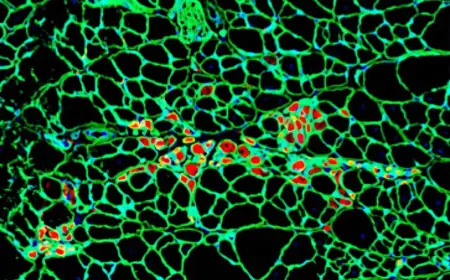A New Type of Diabetes Discovered for the First Time
JCI: Scientists have discovered a previously unknown type of diabetes in infants. The disease is linked to a mutation in the TMEM167A gene, which plays a crucial role in the function of insulin-producing cells.

The research was conducted by specialists from the University of Exeter Medical School and the Free University of Brussels, and was published in the Journal of Clinical Investigation (JCI).
How Was the Disease Identified?
Diabetes that develops in infants under six months of age is usually genetic in nature. More than 85% of such cases are caused by congenital mutations in DNA.
In this new study, scientists analyzed data from six infants who had diabetes along with neurological disorders, such as epilepsy and microcephaly. All six patients had the same mutation in the TMEM167A gene.
How Does the Gene Affect the Disease?
The team led by Professor Myriam Knop used stem cells differentiated into insulin-producing beta cells of the pancreas and applied CRISPR genome-editing technology.
Their findings revealed that:
-
When the TMEM167A gene is disrupted, beta cells lose their ability to produce and secrete insulin.
-
The cells activate stress response mechanisms, which lead to cell death.
Why Is This Important?
Dr. Elisa De Franco (University of Exeter) explained:
“Identifying genetic changes that cause diabetes in infants helps us understand which genes are essential in the process of insulin synthesis and secretion.
Through this study, we were able to uncover the role of the previously little-known TMEM167A gene and show that it is critically important for the proper functioning of insulin-producing cells.”
Global Significance of the Discovery
This discovery offers deeper insights into how insulin production is established and maintained, and could be a major step forward in diabetes research — a disease that currently affects nearly 589 million people worldwide.



























